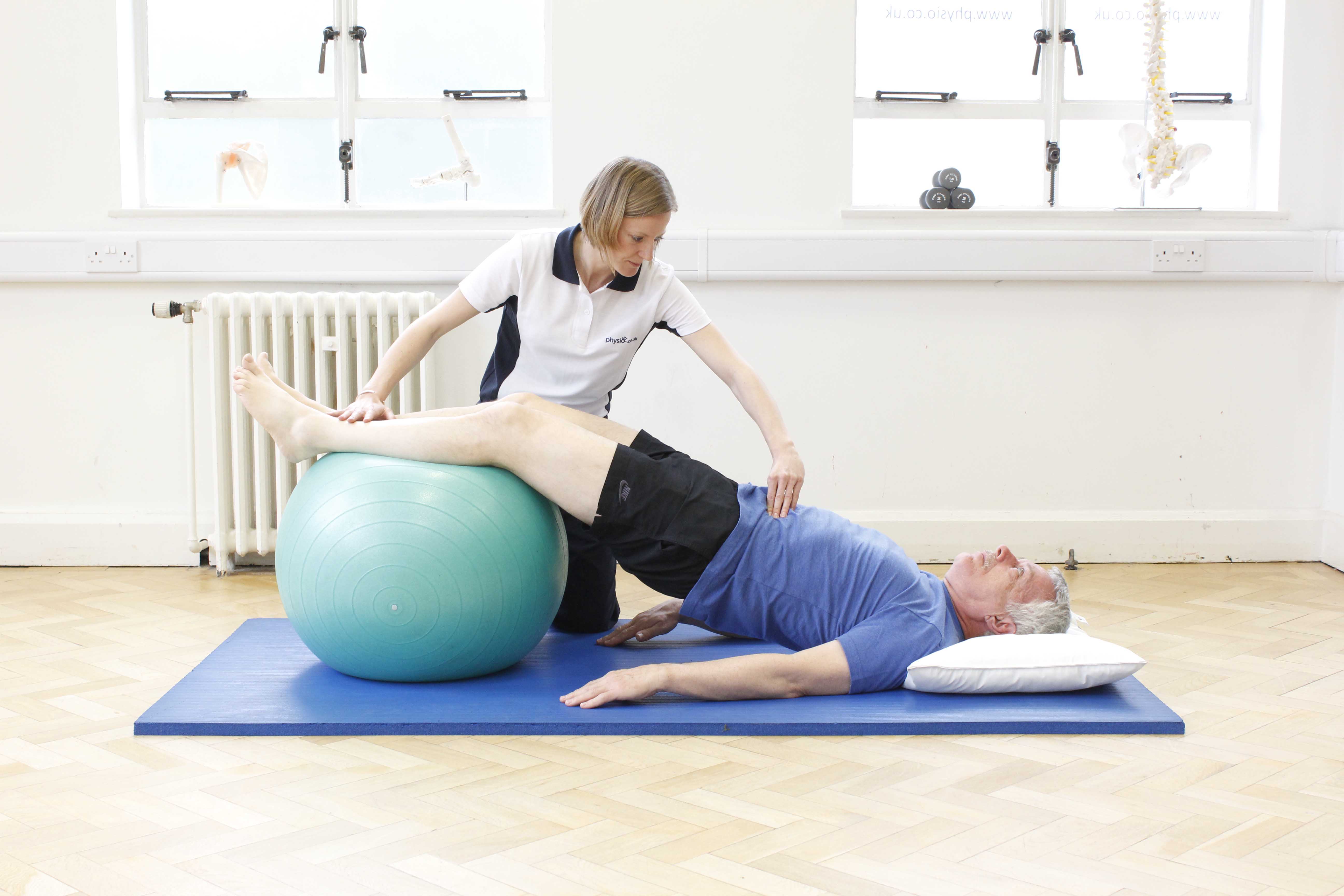People with varying neurological conditions may struggle with daily tasks such as getting up from a low chair, getting in and out of the bath, personal care and going up and down the stairs. Equipment and adaptations enable people to live more independently in their own homes and improve their quality of life.
An initial consultation with your physiotherapist will involve looking at your muscle strength, range of movement and functional needs to see if you require any adaptive equipment. You will be assessed on a regular basis to see how you are coping with your equipment and to see if it needs to be discontinued or changed at any point during your treatment. For example, you may require a walking frame to mobile for a few weeks until strength, balance and endurance has improved, at which point you may move onto using a quad stick to assist you will your ambulation.
 Above: Core stability and proprioceptive awareness exercises supervised by a neurological physiotherapist
Above: Core stability and proprioceptive awareness exercises supervised by a neurological physiotherapistEquipment and adaptations may include:
Positioning equipment – helps position the upper and lower limbs in lying, sitting and standing to facilitate posture, increase comfort and prevent soft tissue shortening. Positioning equipment may include:
- Chairs
- Special splints
- Cushions
- Rolls
- Wedges
- Bed levers, monkey poles and bed ladders to help you in and out of bed.
- Special beds
- Perching stools
- Helping hands
- Adaptations to make cooking easier
- Sit to stand chair
- Transfer equipment
- Stair rails
- Stair lifts
- Bath/shower chairs
- Commodes
- Toilet raises/frames
- Grab rails
- Wheelchair
- Quad sticks
- Frames
- Transfer equipment for car
- Scooters
- Walking sticks
- Quad sticks
- Gutter frame
- Rollator frame
- Zimmer frame
- 3 wheeled walker
- 4 wheeled walker
Alongside advice and support about equipment and adaptations, physiotherapy treatment may also include:
- A structured exercise programme to strengthen muscles and increase your confidence when walking
- Gait re-education to make sure you are mobilising safely and correctly with or without support
- Correcting and varying posture to increase comfort and prevent contractures
- Balance training to help improve confidence and reduce the risk of falling
- Activities to promote functional activities such as walking, stair climbing and getting in and out of the bath.
For more information about our equipment and adaptation assessments or to book an appointment please contact physio.co.uk today by calling 0330 088 7800, or alternatively by making an appointment online

 0330 088 7800
0330 088 7800


































